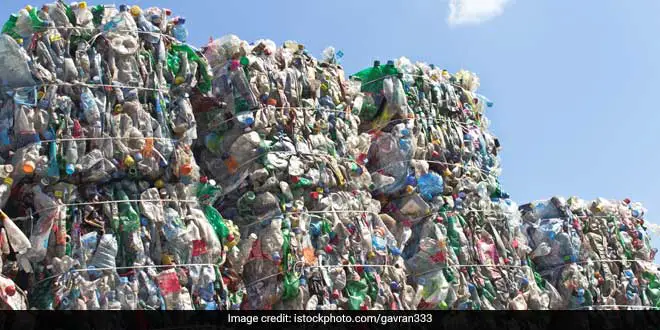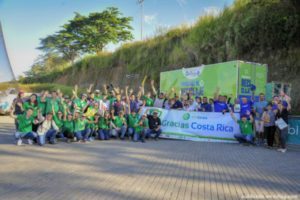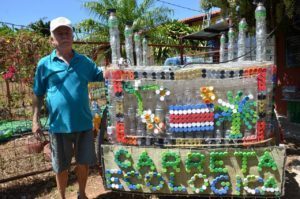(MENAFN- The Costa Rica News) 
Costa Rica discards 564 tons of plastic daily, which, instead of being used forrecycling , are accumulated in landfills or left in the environment. Eugenio Andrevetto, director of Environmental Health for the Ministry of Health, the governing body ofwaste managementin the country recently announced, 'We are burying silver,' explaining that of the total plastic that is wasted daily, 522 tons are sent to the 15 landfills that the country has.
Another 42 tons will go to sewers, streets, seas, and rivers. And only 14 tons of the total amount of plastic waste generated daily is recycled.

The numbers are extracted from the 4,000 tons of all types of waste that Costa Ricans produce per day. These include, in addition to plastic, the remains of other materials such as glass, cardboard, paper, and tin. Of that total daily trash, 87% (3,480 tons) goes to landfills, 7% (280 tons) is left in the environment, and only 6% (240 tons) is recycled.
Although in our country exists social and political will to replace plastics, mainly those of single-use, such as soda bottles, straws, and bags, or giving a new life by reusing them, efforts are isolated and latent. To this is added the reality that Costa Rica lacks a comprehensive law that forces industry and consumers to stop suffocating the planet withplastic materials , of which degradation in the environment takes hundreds and even thousands of years.

This weakness is recognized by the Minister of Environment, Carlos Manuel Rodríguez, who understands the country's needs to expand the regulatory framework and undertake a series of legal reforms to start adequately getting rid of this product, which negatively and directly impacts more than 3000 plant and animal species around the world.
There is no other way out. As in the rest of the world, we are being consumed bypollutioncaused by this material, which crosses seas, rivers, and coasts. Just to cite a local example, a painful reality runs along the Rio Grande de Tárcoles, the most polluted in Central America. This body of water, which passes through five provinces and flows into Puntarenas, has turned Tárcoles, Azul, and Guacalillo beaches into open-air dumps.
In the case of garbage that is taken to landfills, not all are buried, a large proportion remains exposed to theenvironment , disregarding a legal order by the Ministry of Health, because there the waste is not treated, but accumulates in the open.
Although there is currently no legal framework to support the disposal of plastics, the country has been taking small steps to reach that goal, considering both the Minister and the health representatives. Since 2008 there is the Costa Rica Solid Waste Plan (Presol), which was updated with the National Plan for the Integrated Management of Solid Waste 2016-2021. To these is added the National Strategy for Separation, Recovery, and Recovery of Waste 2016-2021.
The Institutional Initiatives of the Ministries of Environment and Health, and theUnited Nations Development Program(UNDP) proposes that, by 2021, 80% of public institutions, municipalities challenge and businesses have replaced their packaging materials with options whose environmental impact is reduced.

As part of the legal initiatives in this regard, work is also being carried out on the reform of Article 22 of the Law for Integral Waste Management, which deals with the importation of products of difficult recovery; Plastics in this case. Says a government official: 'We hardly see a can of beer in the street, there is always someone who will gather it because of its profit can be made. So, we must create a system that gives value to those wastes that do not have it today. Nobody recollects a plastic bottle together because it's worth nothing.'
In response to this problem, in April 2018, Ecolones was born, an incentive system that pays people to recycle. They receive discounts that can then be exchanged for products and services in different stores. It is a platform that urges the inhabitants to separate the waste and take it, clean, to a network of collection centers distributed throughout the country.

MENAFN1708201902160000ID1098891610
Legal Disclaimer:
MENAFN provides the information “as is” without warranty of any kind. We do not accept any responsibility or liability for the accuracy, content, images, videos, licenses, completeness, legality, or reliability of the information contained in this article. If you have any complaints or copyright issues related to this article, kindly contact the provider above.